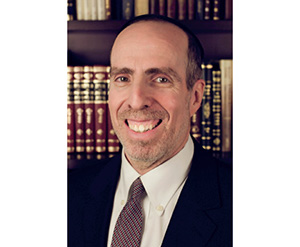
One of my favorite things to do at Congregation Shaarei Orah, the Sephardic Congregation of Teaneck, is to examine our wide variety of Sephardic siddurim that line our bookshelves and discover slight nuanced differences in practice. This past Shabbat I explored many of our siddurim to see if they direct the reader of the haftarot to recite Amen after completing the last bracha, Mekadesh HaShabbat. Rav Ovadia Yosef-based siddurim, the Moroccan siddur and the Tunisian work “Ish Matzliach” instruct the reader to recite Amen at this point. The Syrian, Turkish, Persian (Ghermezian) and Spanish-Portuguese (Minhag Amsterdam) siddurim do not include this instruction. This diversity in siddurim reflects itself in practice at Shaarei Orah. Some recite the Amen and others do not. What is the reason behind this divergence in practice?
A Classic Difference Between Sephardic and Ashkenazic Jews
It all begins with a dispute as to how to interpret a passage in the Gemara Berachot 45b). The Gemara presents braitot that contradict each other. One Beraita praises those who answer Amen to their own brachot and the other criticizes those who do so. The Gemara resolves this contradiction by saying that only regarding the bracha of Boneh Yerushalayim is it appropriate to answer Amen to one’s own bracha.
The Ashkenazic tradition is to follow Tosafot (ad. loc. s.v. Boneh Yerushalayim) and the Rama (Orach Chaim 215:1) who understand the Gemara in a narrow sense that it refers specifically and exclusively to the bracha of Boneh Yerushalayim. Regarding this bracha there is a specific need to create a separation between the first three brachot, which originate in the Torah, and the fourth bracha, which is only a rabbinic enactment.
The Sephardic tradition, however, follows the Rambam (Hilchot Brachot 1:16) and Maran Rav Yosef Karo (Shulchan Aruch Orach Chaim 215:1) who interpret the Gemara broadly to refer to any bracha that resembles Boneh Yerushalayim. Rambam and Maran understand that just as Amen is recited after Boneh Yerushalayim since it is the last of the series of brachot (the first three blessings of Birkat HaMazon, which are of biblical origin) so too is Amen recited after completing a series of brachot. Therefore, Sephardic Jews recite Amen after Yishtabach (the second of the brachot of Pesukei D’Zimra), Hashkiveinu (the last of the Birkat Kri’at Shema) and Sim Shalom (the last of the brachot of the Amida).
The Application to the Brachot of the Haftarah
Accordingly, it would seem fairly obvious that Sephardim should recite Amen after completing the series of brachot of the haftarah. After finishing the last bracha “Mekadesh HaShabbat” the reader should say Amen. In fact, Rav Ovadia Yosef (Teshuvot Yechave Da’at 2:23) and the Ben Ish Chai (year one, Parshat Masei, number 14), the two greatest Sephardic authorities of the past 150 years, agree that Amen should be recited after saying Mekadesh HaShabbat. Two Sephardic Rishonim, the Ritva (Hilchot Brachot 6:5) and Rabbeinu Avraham Alashevilli (in his commentary to Brachot 45b) explicitly state that after saying Mekadesh HaShabbat the reader should say Amen.
Why then do many Sephardic not recite Amen after saying Mekadesh HaShabbat? The answer is that a number of prominent Sephardic authorities record that the minhag/custom is not to recite Amen after completing the brachot of the haftarah. The Kaf HaChaim (Orach Chaim 215:1) concedes that although there is a compelling reason for Sephardic Jews to recite Amen after completing Mekadesh HaShabbat, he records that he has not seen anyone who does so. Maran HaChida (in his Birkei Yosef to Orach Chaim 215:1) similarly writes that only a few Sephardic Jews say Amen after completing the brachot of the haftarah, without explaining why the majority do not.
Conclusion
Rav Ovadia Yosef made an effort to educate and encourage Sephardic Jews to recite Amen after the brachot for the haftarah. Chacham Ovadia has been successful in changing the practice amongst many Sephardim. At Shaarei Orah, I have repeated this ruling of Chacham Ovadia a number of times. I always note that although some premier Sephardic authorities support those who do not say Amen after Mekadesh HaShabbat, there appears to be no compelling evidence for this practice. If someone does not recite Amen after finishing the brachot on the haftarah I do not correct them. However, if they do say Amen after saying Mekadesh HaShabbat, I give them an extra-happy smile and an extra-hearty “chazak u’varuch” It is especially gratifying when young Sephardic Jews recite Amen at this point, as did Josiah Pinto at his bar mitzvah that he celebrated two weeks ago at Shaarei Orah.
By Rabbi Haim Jachter
Rabbi Haim Jachter is the spiritual leader of Congregation Shaarei Orah, the Sephardic Congregation of Teaneck. He also serves as a rebbe at Torah Academy of Bergen County and a dayan on the Beth Din of Elizabeth.










